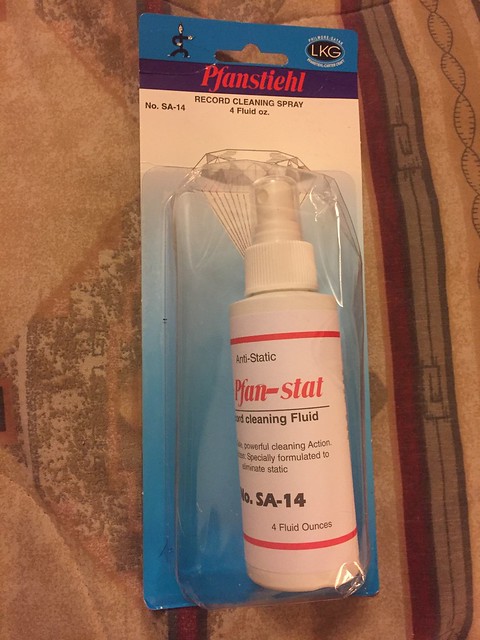AnzacSonata
Super Member
I realize this is probably an overtly clichéd topic around these parts, but it's something that has been annoying me since I got back into vinyl a few years ago (after abandoning it during the CD boom)...
I use the dishwashing soap-and-water method to clean my used vinyl (we can argue the merits of this process in another thread at another time; I basically rinse the LP in luke warm/coolish water, then scrub it down gently in the direction of the grooves with a soft sponge, then rinse, then hand dry with a lint free cloth, and do the same on the flip side) and it has been working fine for me when the object is to clean dirty, mistreated albums or 12-inch singles...however, I find that many times, especially on older used LPs, there's still a good amount of crackle on these records, especially annoying between tracks when there's silence and the volume is turned up...
I totally get that this can be the condition they're in and a billion other factors -- but in general, even records that were purchased and cared for by me years ago that I'm rediscovering now tend to exhibit some crackle throughout (some get super-quiet too, though). I have heard about alcohol (rubbing) being a good chemical for eliminating crackle on vinyl, but is this true?
I use the dishwashing soap-and-water method to clean my used vinyl (we can argue the merits of this process in another thread at another time; I basically rinse the LP in luke warm/coolish water, then scrub it down gently in the direction of the grooves with a soft sponge, then rinse, then hand dry with a lint free cloth, and do the same on the flip side) and it has been working fine for me when the object is to clean dirty, mistreated albums or 12-inch singles...however, I find that many times, especially on older used LPs, there's still a good amount of crackle on these records, especially annoying between tracks when there's silence and the volume is turned up...
I totally get that this can be the condition they're in and a billion other factors -- but in general, even records that were purchased and cared for by me years ago that I'm rediscovering now tend to exhibit some crackle throughout (some get super-quiet too, though). I have heard about alcohol (rubbing) being a good chemical for eliminating crackle on vinyl, but is this true?


